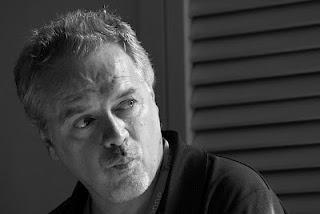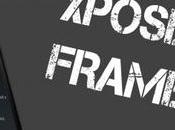Innanzitutto abbiamo chiesto a Massimo qual è il suo pensiero rispetto all’utilità di avere un blog oggi, proprio in anticipazione del suo panel su questo argomento al Festival del Giornalismo di Perugia. Secondo lui oggi è più che mai utile avere un blog: sebbene oggi abbiamo a disposizione molti altri strumenti, alcuni contenuti non trovano uno spazio migliore rispetto a un blog per essere argomentati, commentati e archiviati. I social media presentano dei grandi vantaggi rispetto al blog, che può essere considerato uno strumento ormai invecchiato, ma che secondo Massimo rappresenta comunque la piattaforma migliore per dei contenuti strutturati. [video]
Per quanto riguarda l’utilizzo di Twitter da parte dei giornalisti mainstream, Massimo è del parere che si tratti di una scia, un’imitazione di quello che viene fatto negli Stati Uniti: alcuni hanno capito il mezzo e ne fanno un buon uso, altri seguono semplicemente l’onda. [video]
 Abbiamo chiesto a Massimo come si spiega l’ondata di giornalisti italiani su Twitter, alla luce di queste considerazioni, e lui la interpreta in analogia a quel che era accaduto all’epoca per l’eco dei blog sulla stampa mainstream italiana. Si tratta fondamentalmente di una moda, peraltro ampiamente sopravvalutata per quanto riguarda la stampa “di regime”: per chi ha già un ampio spazio di visibilità sui vecchi media, si tratta di uno strumento in più, che a volte viene sfruttato in maniera adeguata, altre no. [video]
Abbiamo chiesto a Massimo come si spiega l’ondata di giornalisti italiani su Twitter, alla luce di queste considerazioni, e lui la interpreta in analogia a quel che era accaduto all’epoca per l’eco dei blog sulla stampa mainstream italiana. Si tratta fondamentalmente di una moda, peraltro ampiamente sopravvalutata per quanto riguarda la stampa “di regime”: per chi ha già un ampio spazio di visibilità sui vecchi media, si tratta di uno strumento in più, che a volte viene sfruttato in maniera adeguata, altre no. [video]Infine abbiamo parlato dell’integrazione di social media, giornalismo tradizionale e blog, che secondo Massimo rappresentano un discorso complessivamente unico. Il giornalismo è cambiato in maniera velocissima in relazione alla crescita della rete, motivo per cui è diventato cruciale saper integrare la propria attività con una funzione di filtro, più che di produzione culturale, data la ricchezza di contenuti esistenti. [video]
Ci sono molte persone interessanti che scrivono in rete, che non hanno un tesserino, ma che rappresentano a tutti gli effetti una risorsa: l’ambiente informativo diventa così più ampio, non più filtrato dal sistema del giornalismo, e conseguentemente più ricco.
Abbiamo chiesto a Massimo qual è la sua dieta mediatica e qual è la sua definizione di giornalismo, che a suo avviso rappresenta una funziona non più prerogativa dei giornalisti, ma che è di tutti coloro che vogliono fare da filtro tra l’opinione pubblica e le notizie. [video]
Infine abbiamo parlato di Eraclito e dell'evoluzione della comunicazione corporate, specialmente in un'ottica di utilizzo dei social media per il business, del Cluetrain Manifesto e delle previsioni per quanto riguarda il futuro di questi strumenti. [video]
Invito tutti a visionare l’intervista integrale, molto ricca di spunti e riflessioni.
Buona visione!
Maria Petrescu
Photo credit: Aurora Ghini
Intervistato.com | Massimo Mantellini
During this interview with Massimo Mantellini, author of Manteblog since 2002, we talked about journalism, new media, blogs and their integration, but also the evolution of corporate communication and the use of social media for business.
First of all we asked Massimo what his thoughts about the utility of having a blog today are, since he will hold a panel about this topic at the International Journalism Festival. In his opinion today, more than ever, it is useful to have a blog: even though today we have many other tools at hand, some content doesn't have a better space than a blog to be commented, archived and discussed properly. Social media have several advantages over blogs, that might be considered an old tool, but that in Massimo's opinion still represents the best platform where to structure content. [video]
As for the use of Twitter by mainstream journalists, Massimo thinks that it's just a trend, an imitation of what's being done in the US: some have understood the medium and make good use of it, others simply are carried along. [video]
We asked Massimo how he explains the wave of Italian journalists on Twitter, considering these facts, and he interprets with as he did with blogs and mainstream newspapers in the past. It's basically a trend, and an overestimated one: who already has space on old media, only uses it as an additional tool that sometimes is used in the right way, others not. [video]
We also talked about the integration of social media, traditional journalism and blogs, that in Massimo's opinion represent a single matter. Journalism has changed rapidly together with the growth of the web, which is way it is now crucial to integrate the traditional activity with the filter activity, and not just produce content, since there's so much of it out there. [video]
There are many interesting people who write online and that don't have the journalist card, but that are in every way a resource: the information world becomes wider, not filtered by the journalistic system anymore, and therefore richer.
We asked Massimo what his media diet is and what his definition of journalism is, since he doesn't believe it belongs just to journalists anymore, but it belongs to anyone who wants to be a filter between the public opinion and the news. [video]
We also talked about Eraclito and the evolution of corporate communication, especially about social media use for businesses, about the Cluetrain Manifesto and some predictions for the future of these tools. [video]
I invite everyone to view the full interview, much richer in details and insights than my brief synthesis.
Enjoy!
Maria Petrescu





